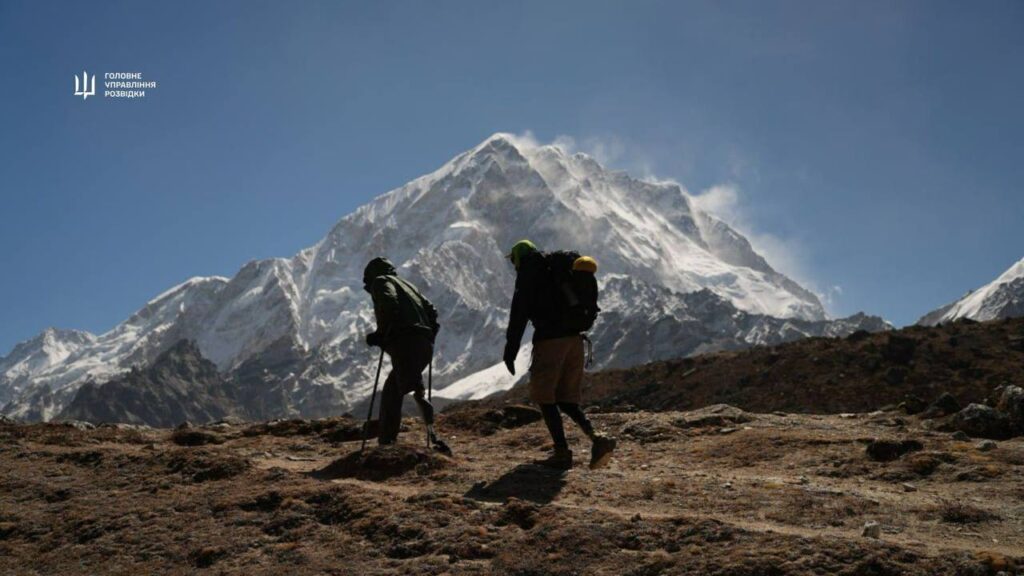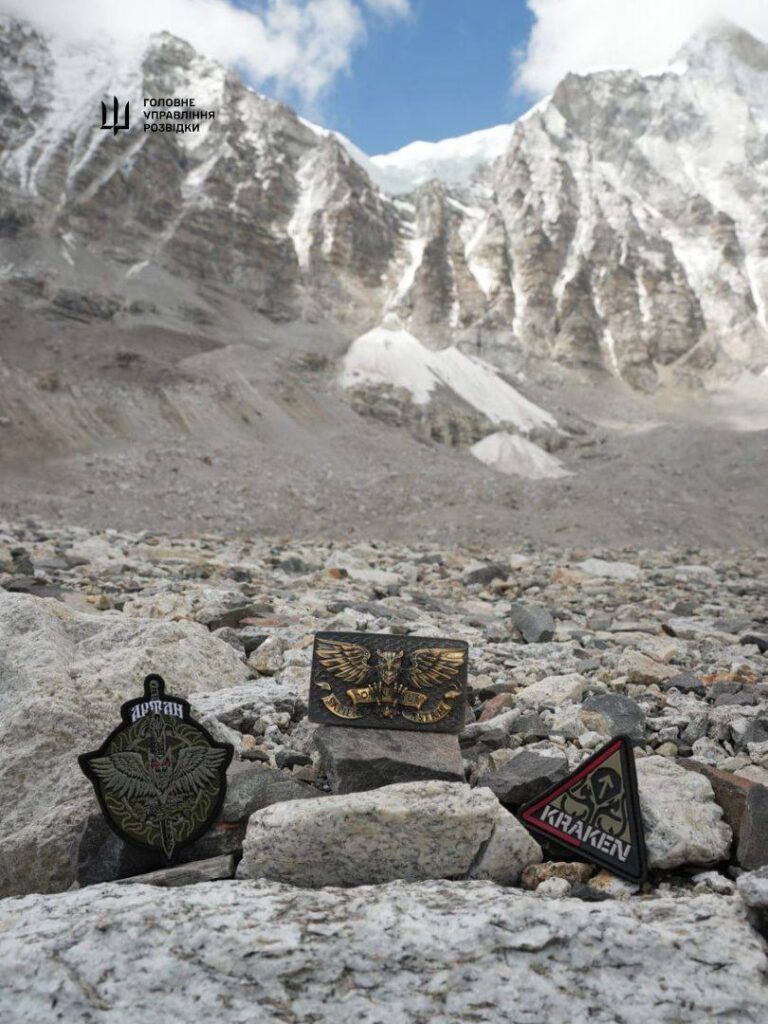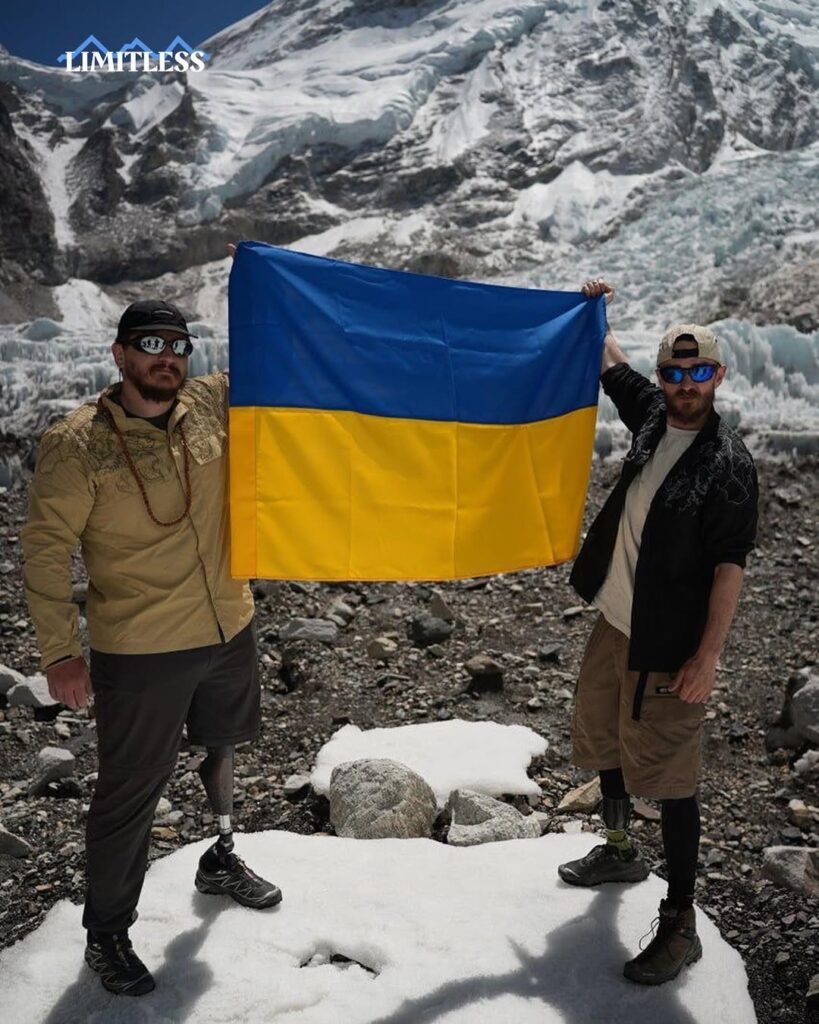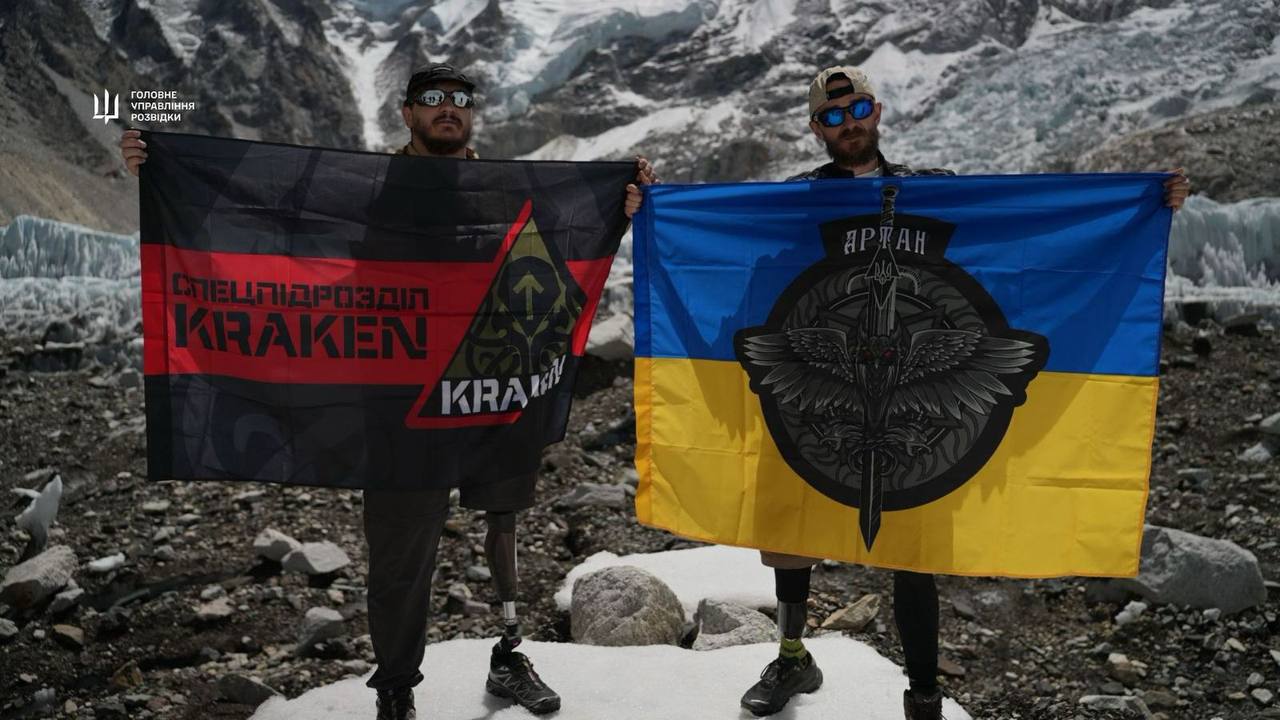Two Ukrainian war veterans, who lost limbs in combat, climbed the Himalayas, reaching Everest Base Camp at 5,280 meters (17,322 ft) on prosthetics.
Ivan Tarn from the "Artan" unit and Oleksandr Dashko from the "Kraken" unit of Ukraine's military intelligence completed the challenging trek as part of the Limitless charity project. This initiative aims to raise awareness about the challenges faced by soldiers with amputations while collecting 3 million hryvnias (approximately $71,000) to help combat phantom pain — a condition where amputees experience pain, itching, or other sensations in limbs that are no longer there.
The Limitless project is being implemented in partnership with the UNBROKEN Ukraine rehabilitation center, established after the full-scale war began in 2022, which provides care for war-injured Ukrainians, including treatment, prosthetics, physical and psychological rehabilitation, surgeries, and reintegration support.
The veterans were accompanied by professional climbers Tetiana Yalovchak and Taras Pozdnii throughout their journey to one of the world's most famous mountaineering destinations.
"You see all this before you, but it's hard for your eyes to believe. It's as if you're looking at very realistic photo wallpaper," Ivan Tarn said.

For Dashko, who has what he describes as "a very significant amputation," the expedition faced considerable skepticism.
"Whoever I told about this adventure would say: people even with two legs don't climb there, and you already don't have a leg, you'll ruin your health even more — don't go," he explained.
Despite these warnings, Dashko persisted, motivated by a desire to show others with similar injuries that "life after amputation exists."


Ivan and Oleksandr became the first Ukrainians with amputations to achieve this feat. Their unprecedented achievement represents "proof that there are no limits for those who have a goal and the strength to go further," the project organizers stated.
"This ascent is about everyone who is currently fighting, recovering, and trying to live a full life despite everything," Limitless project wrote.
In February, five Ukrainian war veterans, four of whom have prosthetic limbs, successfully climbed Mount Kilimanjaro, Africa’s highest peak at 5,895 meters (19340 ft), where they raised a six-meter Ukrainian flag to symbolize the nation’s resilience and the potential for a full life after injury or amputation.
Their also wanted to challenge stereotypes about veterans with disabilities and highlight their role as active contributors to Ukraine’s future.

